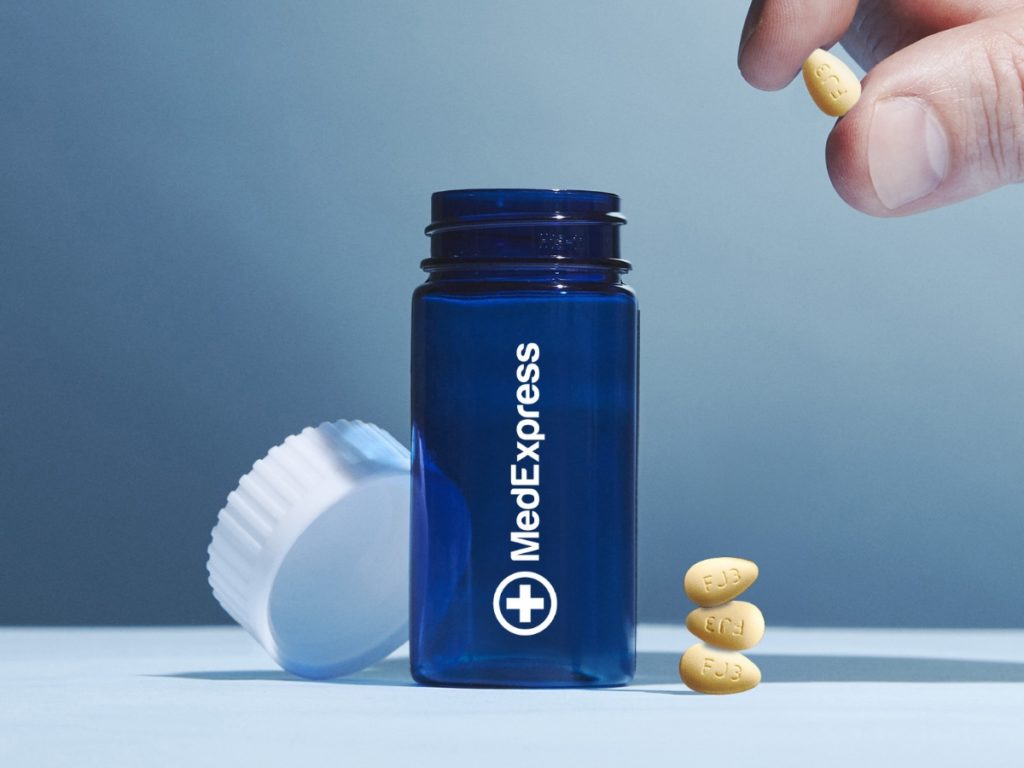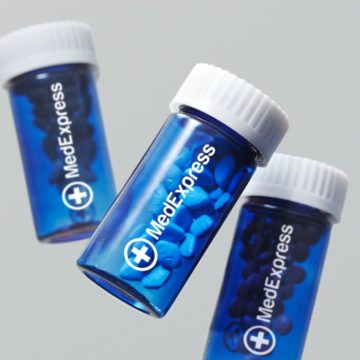Tadalafil, the generic form of Cialis, is a popular medication used to treat erectile dysfunction (ED). Doses available in two forms — a daily dose, and an on-demand pill. But which should you take?
In this post, our experts explain the differences between the two forms of tadalafil, their benefits and how to decide which is right for you.
What is tadalafil?
Tadalafil is the active ingredient in the brand-name medication Cialis, and it belongs to a class of drugs known as phosphodiesterase type 5 (PDE5) inhibitors. It’s most commonly used to treat erectile dysfunction.
How does tadalafil work?
Tadalafil works by relaxing the smooth muscles that surround your blood vessels, which helps increase blood flow to your penis when you experience sexual stimulation. Examples of erectile dysfunction treatments in film and TV may make you think tadalafil will increase sexual desire, or give you unwanted erections, but that’s not the case. It just helps you get and maintain erections when you want them.
Tadalafil vs. other ED treatments
The main benefit of choosing tadalafil over other popular erectile dysfunction medications like sildenafil (generic Viagra) or vardenafil (generic Levitra) is its duration of action, or the time it stays in your body. While other treatments last 4 to 5 hours, tadalafil can remain in your system for up to 36 hours. This has earned it the nickname ‘the weekend pill’.
Tadalafil allows you to have more spontaneous sex, as it removes the need to take a pill just before getting intimate.
What are the two types of tadalafil?
Tadalafil comes in two forms: daily and on-demand.
Daily tadalafil
Daily tadalafil is available in 2.5 mg and 5 mg doses. You take it once a day and it maintains a steady level of medication in your system, meaning you can get an erection whenever you’re aroused. It’s recommended, if you’re eligible, for people who are sexually active regularly and want to stay prepared.
As with any medication, tadalafil can cause some common side effects. These include: a stuffy nose, muscle pain, headaches and digestion problems. Side effects can be milder with lower doses of tadalafil, so 2.5 mg or 5 mg pills may be suitable for you if you experience symptoms on a higher dose.
On-demand tadalafil
If you’d prefer to treat erectile dysfunction as and when you need to, you could take a 10 mg or 20 mg dose on demand. We recommend taking either of these doses an hour before you plan to have sex, and they stay in your system for up to 36 hours, which means you’ll be able to get an erection any time you’re aroused in that period. It’s important you never take more than one single dose of tadalafil per day, or take it alongside other ED medications.
On-demand tadalafil may be more suitable for you if you prefer flexibility, as it allows you to take a dose only when you need it. This gives you more control over your treatment and sexual activity.
How to get the most from tadalafil
Whatever dose of tadalafil you or your healthcare provider chooses to treat your ED, it’s important you know how you can get the best results from your medication. Here are some things that can reduce the effectiveness of your treatment.
- Alcohol: Drinking alcohol can make it more difficult for you to get an erection, whether or not you have erectile dysfunction. [1] So, it can reduce the effects of any ED treatment you take.
- Cardiovascular health: Strong blood flow is essential for healthy erections, so your heart health can have an impact on your sexual performance. [2] Regular physical activity, a balanced diet and cutting out smoking can boost your results.
- Drug interactions: Before you start treatment, it’s essential you let your prescriber know if you’re taking any other medications, as some drugs can cause adverse effects when taken alongside PDE5 inhibitors. Some well known drug interactions include alpha blockers, antiviral medications and nitrates.
It’s also essential you let your healthcare provider know about any other conditions in your medical history that could impact your treatment. These include:
- Heart problems including chest pain, cardiovascular disease, heart attack, heart failure, irregular heartbeat or valvular heart disease.
- Haemophilia, sickle cell anaemia, leukaemia or other conditions that affect your blood flow.
- Liver problems or kidney disease
- Eye diseases such as retinitis pigmentosa
Starting an erectile dysfunction treatment
Wondering which treatment is right for you? Our prescribers can help. They review your health profile and provide personalised recommendations based on your needs and preferences.
Find out more here.
References
- Salari N, Razie Hasheminezhad, Almasi A, Hemmati M, Shamarina Shohaimi, Akbari H, et al. The risk of sexual dysfunction associated with alcohol consumption in women: a systematic review and meta-analysis. BMC Women’s Health [Internet]. 2023 May 2;23(1). Available from: https://ncbi.nlm.nih.gov/pmc/articles/PMC10155345/
- Yannas D, Frizza F, Vignozzi L, Corona G, Maggi M, Rastrelli G. Erectile Dysfunction Is a Hallmark of Cardiovascular Disease: Unavoidable Matter of Fact or Opportunity to Improve Men’s Health? Journal of Clinical Medicine. 2021 May 20;10(10):2221.



